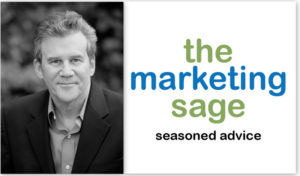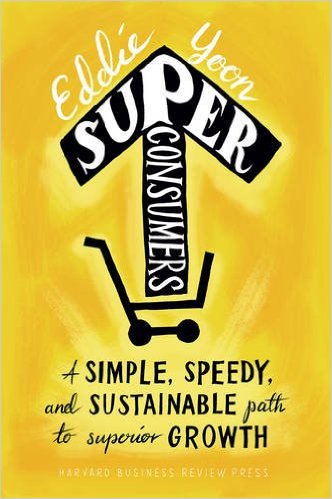Susan buys five times more low-fat Greek yogurt than a typical consumer but she doesn’t have a particularly large family. She has found seven or eight ways to use the yogurt in recipes, blended drinks, salad dressings and much more. Susan is a super consumer.
What can you learn from someone who purchases five times more of your product than the ordinary consumer?
A new book by Eddie Yoon called Super Consumers offers some thought-provoking insight into the world of marketing. A principal with the Cambridge Group, Yoon helps clients find untapped growth opportunities for their brands.
Super consumers, although few in number, can have a disproportionate influence on a company’s bottom line. The book has more than insights about “frequent or heavy users” of a brand. Yoon’s thesis is that there is an opportunity to learn how these super consumers find new and inventive ways to use your product for jobs you never expected.
Picking up on the language from Clay Christensen theories on “jobs to be done”, super consumer hire products to do more than one job and those insights can help unleash growth.
Although the super consumers may be 10% of your customers, they can drive 30-70% of sales and often willing to pay a premium for a product. They can also be powerful resources for brands to learn how to find new ways a product or service can fit into someone’s life.
Insights from Super Consumers
This book is rich in data and worth the price. Here are a few insights and ideas:
- How can you tap into valuable advice from these super consumers to help guide product, positioning and packaging ideas? These folks have a deep passion for a category, not just a product.
- Most companies grow by trying to split the pie – taking share from others through lower price, more ads, etc. Usually, that doesn’t grow the pie. A better path to grow the category is by finding new consumers and expanding the market.
- The super consumers, if tapped into, can open and explain new usage occasions or purposes for products. Think of super consumers in the yogurt category – they have dozens of ways they use your product and that learning could inform how you plan new product launches.
An example from the book is vitamins. Some people are diligent taking vitamins regularly. A small subset buys a huge number of vitamins. They aren’t wealthier or bigger households. They see vitamins as a form of insurance to protect their health. They aren’t buying for functional but emotional reasons.
These types of people exist in every category. A super consumer hires a category for multiple benefits and jobs.
Think of Velveeta cheese. The soft cheese promotes itself as perfect for making dips for super bowls, but super consumers use it for other purposes like getting their kids to eat more vegetables by putting soft cheese over broccoli. What if you could find more consumers who would “hire” your product for this purpose of getting kids to each more veggies, even though they don’t have an interest in the primary dip-making idea? The category expands, and you have new users consuming your product.
Soy milk was originally a very missional, crunchy-granola type of consumer. Eventually, people realized that there were multiple uses besides drinking it straight like adding it to coffee or cereal. When you added flavor to soy, you could change the flavor of a product, like coffee and now you have new users interested in the product who weren’t before. Flavors led to selling soy milk refrigerated and expanded the category. People could hire soy milk as an excuse to drink chocolate milk that made them feel less guilty. The insights and observations of the super consumers help open up new avenues for growth.
Emotional Protection
Another interesting insight from the book is that people who buy more vitamins are, in a sense, buying mini-health insurance. They want to protect themselves from harm. It turns out that this group also is interested in buying other forms of insurance like standby generators in case of power outages, or life insurance or multiple refrigerators. Super consumers tend to be super consumers in many categories because of the emotional benefits it brings to them.
Want to grow your brand – grow your category through super consumer insights. Yoon’s book, Super Consumers, offers valuable insights to help you find new paths for growth and opportunity.
What could a few hours of marketing advice do for your brand? Think of me as a marketing partner, behind the scene, to help you find new paths to grow your brand. Email me at jeffreylynnslater@gmail.com or text me to set up an appointment at 919 720 0995.

Photo Courtesy of Harvard Business Press – Eddie Yoon, Super Consumers.




